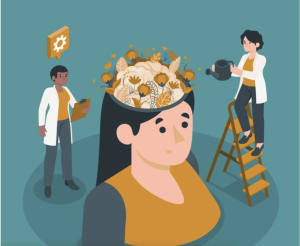Year 9 Future Ready Programme Launches
In February, five Aspirations Academies were involved in the Year 9 Future Ready Programme, delivered by Speakers...
Read more Year 9 Future Ready Programme Launches“Exams are not the fairest way to assess the performance of all students. They inhibit social mobility and they are no longer an appropriate means of assessment in the 21st century.”
Steve Kenning, CEO of Aspirations Academies Trust, has added his signature & voice to calls for a Digital Learner Profile, an initiative launched by Rethinking Assessment.
Read why here:
The way we assess our young people is “too narrow”, causes “an increase in stress” and labels a third of young people as failures.
A group of leading educators, employers, policy experts, academics and politicians have released a joint statement calling for the adoption of a digital learner profile which will better reflect young people’s achievements and give their future employers more relevant information about their skills.
The statement, signed by two former education secretaries, several leading academy trusts, local authorities and a number of education charities, argues that what is currently assessed is “too narrow, predominantly focused on subject knowledge in individual disciplines.”
It claims that the way learning is assessed is also “too narrow, largely in high stakes written exams at a fixed time regardless of students’ age or readiness.”
The signatories note that as a result, “a third of young people, mostly from disadvantaged backgrounds, are labelled failures. There is an increase in stress and the curriculum is shrunk in the race to succeed in these exams.”
The statement outlines a better alternative: a digital learner profile that will “include evidence of what a young person can do, what they have achieved, the story of their learning and of a portfolio of their best work.”

The full statement says:
Unlocking a better assessment system with a new Learner Profile
We believe that our current assessment system is flawed.
What is assessed is too narrow, predominantly focused on subject knowledge in individual disciplines.
The way in which learning is assessed is also too narrow, largely in high stakes written exams at a fixed time regardless of students’ age or readiness.
The result is that a third of young people, mostly from disadvantaged backgrounds, are labelled failures. There is an increase in stress and the curriculum is shrunk in the race to succeed in these exams.
We believe that we need to broaden what is assessed, and how we assess it.
We need to recognise and evidence the full range of strengths of every young person.
We believe that this can be best achieved by using a variety of modes of assessment, not just written exams.
We believe that a powerful way of achieving this is for every young person to compile a learner profile while at school, which can be added to beyond school.
This will be put together during their 14-year learning journey, and be particularly useful at moments of transition. It will be used by colleges, universities and employers as a better way of getting a rounded picture of a young person – an end of school profile that goes way beyond a set of exam numbers and letters. The profile will include evidence of what a young person can do, including qualifications, what they have achieved, the story of their learning, and a portfolio of their best work.
Rethinking Assessment’s draft learner profile is now out for consultation and employers, colleges and universities are collaborating with us to make it as effective as possible.
Signatories
Alice Barnard, CEO, the Edge Foundation
Dr Amelia Peterson, Head of Learning and Teaching, London Interdisciplinary School
Andy Haldane, Chief Executive, The Royal Society of Arts, Manufacturers & Commerce
Andy Moor, CEO, Holy Family Catholic Multi Academy Trust
Baroness Estelle Morris
Professor Bill Lucas, Professor of Real World Learning, University of Winchester
Dame Alison Peacock, CEO, Chartered College of Teaching
Damian Allen, CEO, Doncaster Borough Council
David Perry, Chair Comino Foundation
Frank Norris MBE, Education & Skills Advisor Northern Powerhouse Partnership, Chair
Blackpool Education Improvement Board
Geoff Barton, General Secretary, ASCL
Professor Guy Claxton
Georgea Hughes, Director of Programmes, The Wood Foundation
Gwyn ap Harri, CEO, XP Trust
Ian Emerson, Deputy Head, Latymer Upper School
Lord Kenneth Baker
Kerry-Jane Packman, Executive Director ParentKind
Dr Meeta Vouk, Director and Product Lead, IBM
Neil Strowger & Phil Avery, CEO and Director of Education, Bohunt Education Trust
Ollie Bray, Strategic Director, Education Scotland
Peter Hyman & Liz Robinson, Co-Directors, Big Education
Rachel Macfarlane, Director of Education Services, Herts for Learning
Robert Lobatto & Al McConville, Head and Deputy Head, The King Alfred School
Sally Dicketts CBE, ex President Association of Colleges
Sarah Fletcher, High Mistress St Pauls Girls School, Chair HMC Reform of Assessment working group
Steve Kenning, CEO, Aspirations Academies Trust
Dr Tamsin Ford, Professor of Child and Adolescent Psychiatry, University of Cambridge
Sir Tim Brighouse
Tom Ravenscroft, CEO, The Skills Builder Partnership
Tom Sherrington, Trustee, National Baccalaureate Trust
Will Goldsmith, Head, Bedales School
In February, five Aspirations Academies were involved in the Year 9 Future Ready Programme, delivered by Speakers...
Read more Year 9 Future Ready Programme LaunchesThe first Aspirations Employability Diploma final of 2025 marked a significant milestone in the academic year, bringing...
Read more AAT Celebrates First Aspirations Employability Diploma Final of 2025The Diversity and Inclusion in STEM report acknowledges the lifelong benefits of STEM-related skills. It notes that opportunities...
Read more Dr Jeffery Quaye OBE: The next government must shift our anti-maths culture